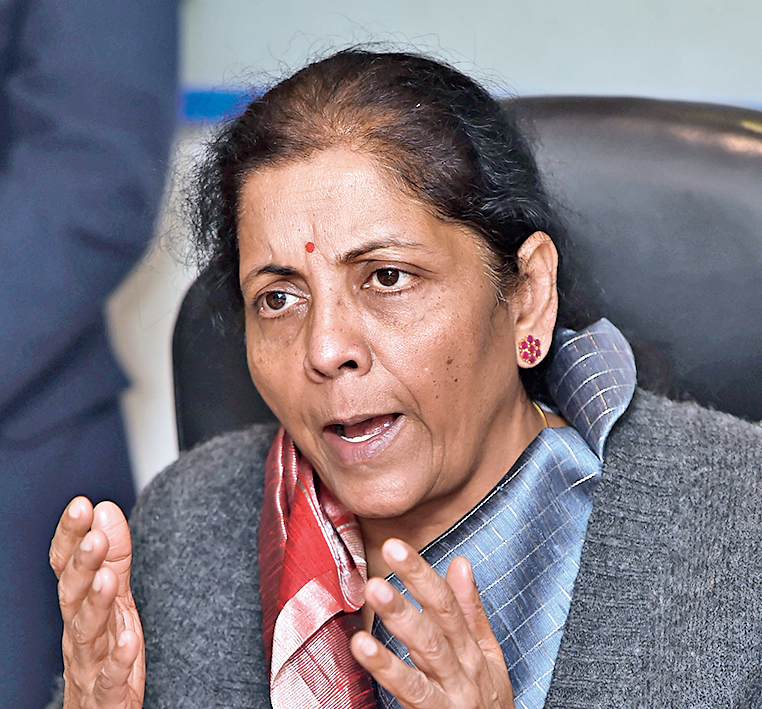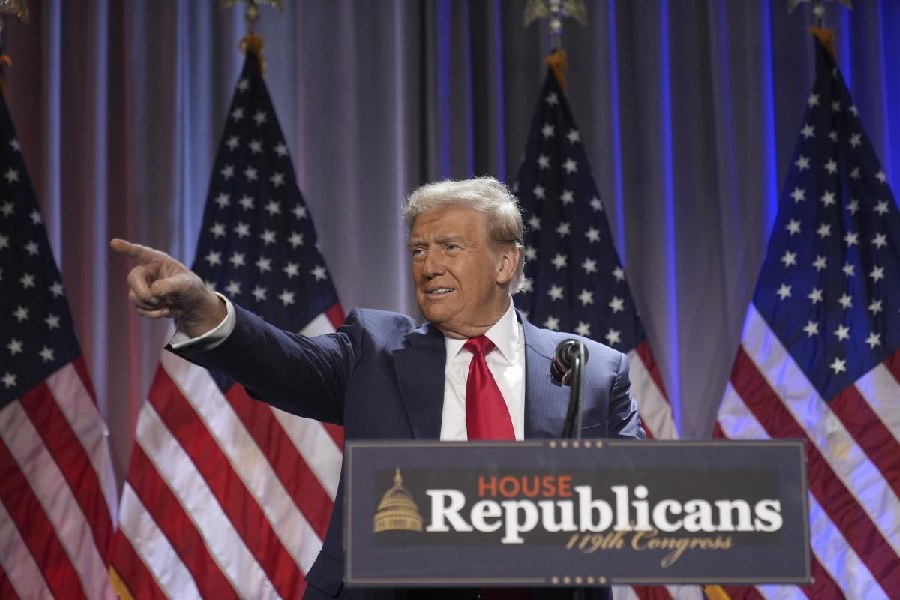The Narendra Modi government on Saturday took its first stab at reassuring bankers who have been scared to lend to companies lest there be severe repercussions — including the possibility of inquiries by the CBI, CAG and the vigilance commission —- if these loans turned bad.
Probably for the first time ever, the CBI director was present during the talks between finance minister Nirmala Sitharaman and the heads of public-sector banks to find ways to boost lending and revive a stuttering economy.
The bankers’ fears have been articulated several times in the past, and has been one of the reasons why commercial credit growth in the banking sector has been tepid this year, accentuating the already acute problem of enfeebled lending because of corporate houses’ reluctance to borrow during a severe, demand-constrained economic slowdown.
Growth in non-food credit — which generally signifies lending to industry — has fallen to 8.8 per cent, at Rs 97.7 lakh crore on October 25 this year from Rs 89.78 lakh crore in the same period last year.
Credit rating agency ICRA expects the non-food credit growth to tumble to anywhere between 8 and 8.5 per cent by the end of the fiscal, which would make it the slowest credit growth in 25 years since 1993-94.
In November, the Central Statistics Office had reported that GDP growth in the second quarter, ended September 30, had tumbled to a six-year low of 4.5 per cent.
The bankers were assured at the meeting that they would be protected if they had acted in good faith and had observed all the practices of prudential commercial decision-making while extending credit.
“There was a concern that genuine, bona fide decisions are not being made because of the worry of undue harassment. In the presence of the CBI director, we had a meaningful conversation with banks. The misgivings have been explained to them,” Sitharaman told reporters.
The government emphasised that the federal investigating agency would be “sensitive to the distinction between genuine commercial failures and culpability”, a finance ministry note said while summing up the decisions taken at the meeting.
It was decided that the CBI would embrace the system adopted by the income-tax department, tagging a registration number to its notices “to avoid the scope for unauthorised communication and consequent harassment”.
The CBI has been notorious for sending out missives that blank out all details about the office and the personnel responsible for issuing the notice, perpetuating a climate of fear and the scope for harassment.
“It was also noted that there is need for preserving the value of the business enterprise by treating it on a separate footing from culpability of individuals, if any,” the ministry’s note said.
The CBI will also create a dedicated phone number that will allow anyone to give information about any harassment by the investigating machinery, the note added.
The public-sector banks will also be able to report instances of fraud through e-filing of first information reports (FIRs) at a designated email address of the CBI “so as to avoid scope of any arbitrage due to information asymmetry”.
It has been decided that any suspected fraud of more than Rs 3 crore will be first looked upon by the bank’s internal committee before the matter is sent to the banking regulator and then to the investigative agency.
Bankers’ fear relating to bad loans has exacerbated since the Narendra Modi government started looking for ways to pin the blame on the UPA administration for bad loans, which it suspected were a reflection of rampant crony capitalism between 2009 and 2014.
The bankers’ fears of post-facto investigation were best highlighted by former Reserve Bank of India governor Raghuram Rajan in his book I Do What I Do, which came out two years ago.
Rajan wrote: “Bankers were always fearful of the investigative agencies, who could question a purely commercial decision where debt was written down, and thus ruin the banker’s hope of a quiet and honourable retirement. This made bankers very reluctant to agree to the deep significant restructuring that was needed to set projects back on track. Why take the risk when retirement was only six months away?”
At Saturday’s meeting, bankers were also advised to adhere to strict objective standards while selecting forensic auditors and devise standard operating procedures to carry out such audits.
Banks have been carrying out forensic audits of loan defaulters’ books to unearth the money trail as the promoters of many companies have been accused of siphoning off loans obtained from banks to other projects and to buy assets overseas.
The Indian Banks’ Association, which represents the interests of 237 banking entities operating in the country, has been requested to strengthen the process of empanelling forensic auditors and put in place robust arrangements to assess the forensic auditors’ adherence to standards.
Curiously, it has also been suggested that the IBA should tie up with the CBI to train forensic auditors.
It was not immediately clear how CBI sleuths would enlighten forensic auditors, who already go through a gruelling process of training and selection.
But it will mean that the federal investigation agency will have an early insight into the problem of bad loans -– almost from the moment they start to emerge.











